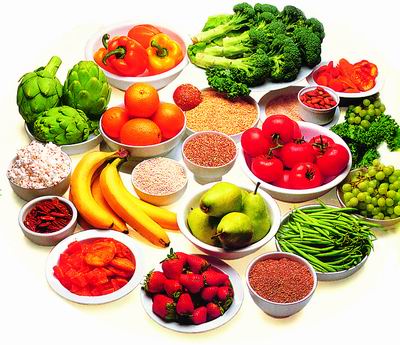These days it’s hard to know what foods are best to aid concentration and performance in studying and examinations. It seems three different diet gurus are saying three different things at any given time about the “ideal” mix of foods to boost focus and retention. The good news is that there are points of congruence where the experts agree. Here is a list of six great foods to help your child perform better in school and help curb test and grade anxiety. (Of course, just eating right isn’t enough; hitting the books does have a role to play, too!)

1) Proteins
Red meat, green, leafy vegetables, eggs, and other high-protein foods also tend to contain iron, which aids in concentration and information retention. Protein-rich foods are good for studying because they produce long-lasting energy and help oxygenate the brain, an important component in efficient studying. Nuts are also high in protein and iron, but unlike most red meats they also contain fatty acids that have been shown to aid memory and concentration, making them an excellent study snack or after-meal brain booster.
2) Whole Grains
Processed grains like the wheat flour in white bread aren’t nearly as good for effective studying as whole grains, because most of the nutritional value has been removed and replaced with chemicals that actually make the brain less efficient. Whole grains include whole wheat, bran, oatmeal, and brown rice, and contain the B-complex vitamin folate, which can be found in synthetic form as folic acid in vitamin supplements and “enriched” foods. Crackers, pasta, and popcorn are also great sources of whole grain, so if your child asks for popcorn as a study-session snack, you can feel good about saying yes! (Just go easy on the butter and salt.)
3) Water and Teas
Plain old H2O is one of the best study aids around. The brain is made up of about three quarters water, and believe it or not, your brain can dry out. (This may be one reason why people get severe headaches.) When the brain becomes dehydrated, it shrinks the memory and neural processing components to conserve water, reducing mental efficiency. Most people don’t drink enough pure water, but for those who really need a flavor boost, green tea is an excellent alternative to plain water. Black and orange teas are good as well, because of the additional vitamins they contain, but water is still the best brain beverage going.
Getting kids to eat their veggies poses a number of unique challenges, as just about any parent who’s ever tried it can attest. However, fruits and vegetables contain folic acid, fiber, and “good” carbohydrates that enhance comprehension and energy without the lethargy and mental fuzziness that often accompanies refined sugars and carbs. Apples, spinach, berries, and broccoli all rate high on the great study food scale, and because all these foods are rich in vitamin C, they also augment immune responses, which is handy considering the cold and flu season is very much upon us!
5) Chocolate
If you did a double-take on this one, you’re not alone. Surprisingly, dark chocolate has been shown to aid cognitive skills and recall because it contains flavonoids (also known as citrin or vitamin P) that stimulate blood flow to the brain. Don’t count milk chocolate out, though; the pleasure-causing endorphins that make chocolate fun to eat also make students happier and increase their concentration. Obviously you don’t want to let your kids make a meal out of chocolate, but for an afternoon snack or an evening cram session, moderate amounts can make studying more fun and effective!
6) Cheese
Actually, all calcium-rich foods are good for studying. Milk, cheese, and yogurt are just a few excellent sources of calcium and proteins that help increase the amount and smooth function of chemicals called neurotransmitters. These chemicals help the brain process and recall information more efficiently and with greater clarity. Yogurt’s a fun, sweet snack food, while prepackaged cheeses such as string and block cheese are great for nibbling during an intense cram session. Have your child wash these down with a glass of milk while hitting the books and watch their grades improve!
7) Foods to Avoid
Especially among older children and teenagers, beverages like soda and energy drinks have become all the rage for studying. The problem with these is that they’re loaded with empty calories and artificial flavors and colors. Once the sugar and caffeine wear off, so does focus. Potato chips and other processed snack foods should be avoided or consumed very sparingly, because the carbohydrates in these foods tend to be loaded with bad cholesterol and fat. Most of the foods on this list are healthier, less expensive, and more effective at helping your child get the most out of their studying!
This guest post was provided by www.yorknotes.com.
























